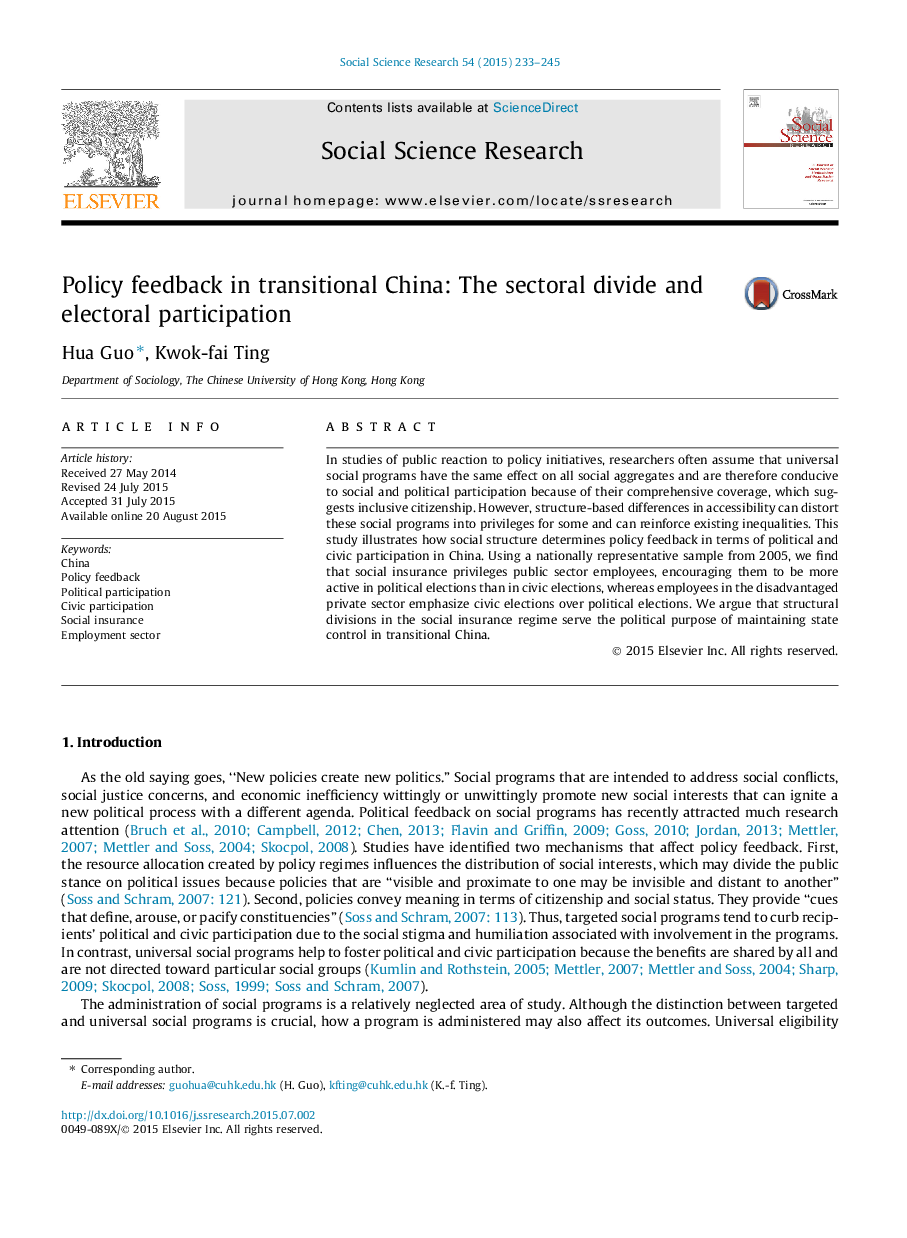| Article ID | Journal | Published Year | Pages | File Type |
|---|---|---|---|---|
| 955624 | Social Science Research | 2015 | 13 Pages |
•We tested policy feedback theory in the context of China.•Universal social insurance does not have same effect on all social groups.•Employees from public sector and private sector have different patterns in political and civic participation.•Structural divisions in social insurance regime serve the political purpose of maintaining state control.
In studies of public reaction to policy initiatives, researchers often assume that universal social programs have the same effect on all social aggregates and are therefore conducive to social and political participation because of their comprehensive coverage, which suggests inclusive citizenship. However, structure-based differences in accessibility can distort these social programs into privileges for some and can reinforce existing inequalities. This study illustrates how social structure determines policy feedback in terms of political and civic participation in China. Using a nationally representative sample from 2005, we find that social insurance privileges public sector employees, encouraging them to be more active in political elections than in civic elections, whereas employees in the disadvantaged private sector emphasize civic elections over political elections. We argue that structural divisions in the social insurance regime serve the political purpose of maintaining state control in transitional China.
